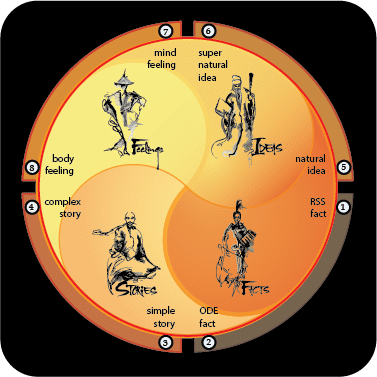Could severe childhood trauma symptoms be misdiagnosed as Asperger’s? I was diagnosed when I was a child but the diagnosis doesn’t seem to fit anymore now that I am not only older but also in recovery.
I too have Asperger’s and am also in recovery, now 35 years. Sadly, based on the responses posted here, it seems, the phrase “in recovery” doesn’t ring a bell to most. As to your question though, sadly, yes, this can happen, albeit it didn’t happen to me. So while I did suffer multiple childhood traumas, and while I do have Asperger’s, the Asperger’s diagnosis didn’t exist when I was a child.
More important though is trying to speak to the point of your question. If I read it right, you are asking if you could have been misdiagnosed as having Asperger’s. And while I would never attempt to diagnose someone online, let alone from this little information, it might help you to know that being in recovery helped me enormously with regard to my Asperger’s, as it taught me ways to socialize and to feel less uncomfortable in groups. In doing so, it both softened my Asperger’s traits and helped enormously with my childhood traumas, so much so that people on first meeting me often fail to believe I have Asperger’s, let alone childhood traumas.
In truth though (and according to the “great” me), I’ve come across very few people who can diagnose Asperger’s accurately. Currently, every kid who is shy is at risk to get this diagnosis.
Here, I find it important to remember the point of Hans Asperger’s 1940’s master’s thesis. He used descriptions of nerdy high school boys to posit [in my theoretical language] a minority personality which many decades later came to be named after him. As opposed to Leo Kanner’s variation, whose 1940’s work described a completely different minority personality; Autism.
How do they differ? It’s simple. These two minority personalities react strongly to a completely different class of distractions. The main distractions for people with Asperger’s? Imprecision with words and ideas; verbal and semantic, non-physical distractions. And the main distractions for people with Autism? The complete opposite. Imprecision managing sensations; physical, non-verbal distractions.
Finally, it’s important to remember that Asperger’s (and in truth, all four minority personalities) exist on spectrums. This means they range from text book examples (a large constellation of strong traits) to having a notable number of these traits (a smaller constellation of mild traits). So while I’ve seen many people whose personalities fall into the Asperger’s quadrant but who do not have full-blown Asperger’s, I’ve seen many others who immediately present as classic examples.
One last thing.
Please know, in the end, none of this matters. All that matters is learning to be yourself. I mention this as I find the source of most of the awkwardness present in my Asperger’s “patients” comes from the ever-present but wrong-headed attempts to make them, as children, imitate normal. And anyone who is being pressured to imitate someone else’s version of normal will look awkward.
